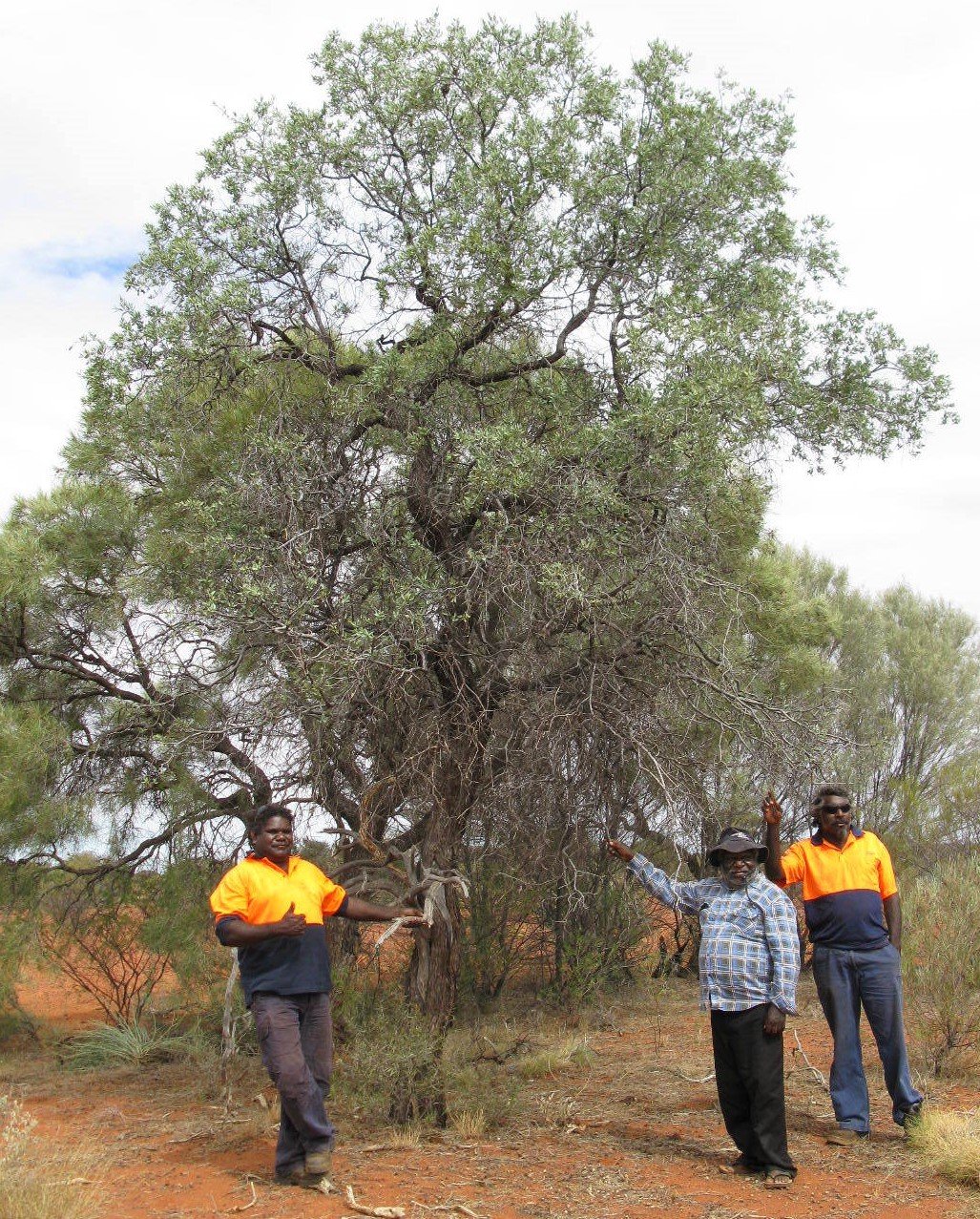Sandalwood
A sacred tree with deep roots and an even deeper history
Called the ‘king of woods’ in India, sandalwood has a long and sacred history. Sandalwood oil has been used for thousands of years as a traditional medicine for its distinct properties (antiseptic, astringent, diuretic and more) and as a fragrance in perfumery and cosmetics. Cleopatra herself is said to have used sandalwood as a fragrance and an ingredient in her makeup.
Indian sandalwood (Santalum album) and Australian sandalwood (Santalum spicatum) are considered two of the most coveted varieties. Today, Sandalwood trees can also be found in Nepal, Bangladesh, Pakistan, Sri Lanka, Indonesia, Hawaii and other Pacific Islands.
Santalum album
Sandalwood trees can grow to a height of ten metres, are evergreen and bloom throughout the year. They thrive anywhere from fertile valleys to dry mountainsides and derive some of their nourishment from the root systems of neighbouring plants. Slow growing and taking 50 years to reach full maturity, the wood has a lingering scent that can remain for decades, and older trees are considered to have higher oil quality. To make the best use of the wood, the tree is harvested by uprooting it so that even the stump and root, which also possess high levels of sandalwood oil, can be used. The wood is ground so that the essential oil can be obtained through steam distillation.
Due to overharvesting and illegal harvesting, combined with the slow maturation rate of sandalwood trees has made the species vulnerable to the environmental risks such as disease and weather-related losses. The combination of these factors has led to wild populations of sandalwood becoming scarce in India where it was listed as a vulnerable species in 1998 (IUCN) and remained listed as such since then.
Australia’s indigenous variety is a smaller tree than its Indian counterpart, growing up to 4 meters tall in the wild. Despite this, it is sought after by the global luxury perfume and cosmetics markets for its distinctive scent. Wild sandalwood in Australia faces some regeneration challenges due to threats such as overgrazing, drought, and the disappearance of a small marsupial that is key for sandalwood seed dispersal.
For the Aboriginal communities of Western Australia like the Martu people who have known the medicinal properties of the tree for tens of thousands of years, Sandalwood is a sacred tree. Elders would chew the nuts to create a paste which was either applied to the skin to treat ailments or ingested for its digestion properties. They would also burn the wood to create a natural mosquito repellent and psychological aid inhaling its scent is said to heal the body and mind.
Australian Sandalwood (Santalum spicatum), © Dutjahn Sandalwood Oils
“Dutjahn (sandalwood in Martu language) is more than a sacred plant to the Martu and Wongi Nations, it is part of our soul and a key link to our spiritual identity,” said Darren Farmer, Chairman of Dutjahn Custodians, Owner – Dutjahn Sandalwood Oils, a UEBT member company. 50% Indigenous owned, Dutjahn Sandalwood Oils are based in Western Australia and make essential oils by fusing wild harvested wood from native title lands deep in the Gibson desert, with plantation wood. "We need to understand each other's perspective. That is the great part of the journey. We are learning a lot from each other, it is an incredibly rewarding journey for all of us" Keith Drage, Managing Director of WA Sandalwood Plantations, Co-Owner of Dutjahn Sandalwood Oils.
Plantation of sandalwoods in Western Australia, © Dutjahn Sandalwood Oils
Following traditional Martu knowledge, there is an emphasis on traditional custodianship, to care for the land and to protect the sacred sandalwood tree. “On our homeland we have 200 to 300 years old sandalwood trees. We do not harvest them, we call them the mother trees [...] when we harvest a tree, we plant 20 seeds: in the hole where the tree has been pulled out from and next to the host trees,” Clinton Farmer said, current Chairman of Kutkabbuba Aboriginal Corporation, Co-Owner – Dutjahn Sandalwood Oils.
Harvesting sandalwood tree, © Dutjahn Sandalwood Oils
Sources
Equator Initiative Case Studies: Dutjahn Sandalwood Oils pty ltd
Dutjahn Sandalwood Oils, website
Partnerships in Sourcing Australian Sandalwood: Dutjahn Sandalwood Oils, Sustainable Herbs Program webinar
Australian vs Indian Sandalwood: What’s the difference?, Cosmetics Business




